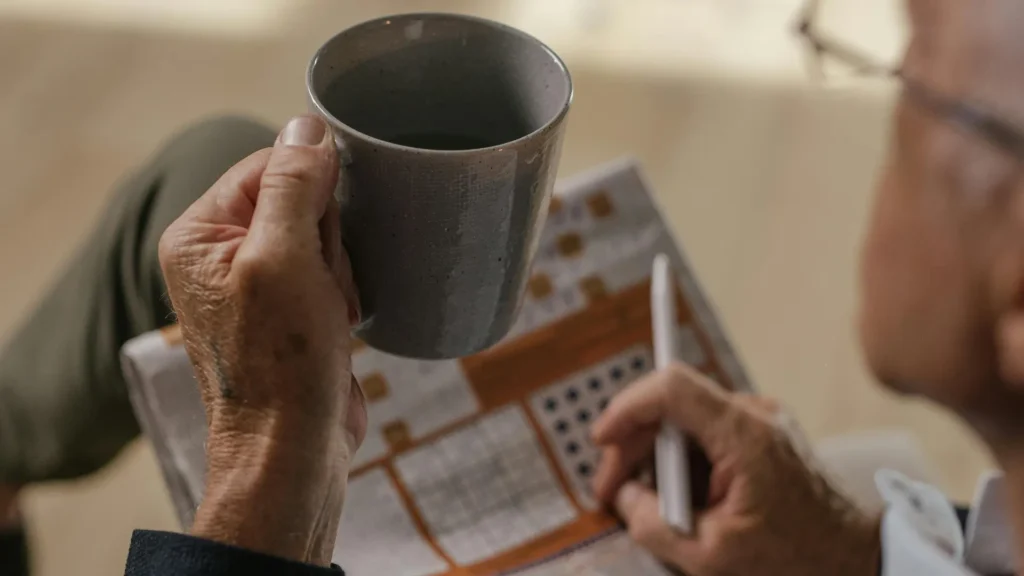Meals are not just food on a plate. For seniors, meals are fuel, comfort, and health combined. Many seniors face the daily question: What should I eat today? The answer feels harder than it needs to be, but the truth is planning balanced meals can be simple and stress-free.
Balanced meals keep the body strong, the mind sharp, and the heart steady. Seniors need nutrients in the right amounts because the body changes with age. A good meal plan reduces the risk of weakness, low energy, and long-term health problems. Planning meals may sound complicated, but once you know the steps, it becomes a tool to protect your independence.
You care about health, but you also want meals to taste good and fit daily routines. This is why a plan is important—it removes stress from daily choices. In this guide, you will learn the steps to make balanced meal planning clear, simple, and doable.
Keep Meals Simple but Nutritious
A balanced plate for seniors should include three main parts: protein, healthy carbs, and vegetables or fruits. Protein helps protect muscle strength. Carbs provide steady energy. Vegetables and fruits give vitamins and fiber for digestion.
You do not need to memorize charts or long lists. Just picture your plate: half filled with vegetables or fruit, one-quarter with protein, and one-quarter with whole grains or other healthy carbs. This simple layout keeps meals balanced without effort.
Here’s the payoff: when you follow this pattern, you cover most nutrition needs without stress. No more guessing. No more confusion. Just one easy rule you can use at every meal.
Meal planning can sound tiring, but it does not have to be. The secret is choosing foods that are both easy to prepare and rich in nutrients. For breakfast, oatmeal with berries and yogurt is fast and balanced. For lunch, a tuna sandwich on whole grain bread with sliced vegetables works well. For dinner, grilled chicken, brown rice, and steamed broccoli give everything you need.
Notice the pattern: protein, carbs, vegetables, and fruit. Once you see this, the pressure disappears. Planning is no longer about long recipes—it’s about repeating a simple structure with different foods. You will never have to overthink meals again.
To make this stress-free, write down a short list of meals you enjoy for each part of the day. Rotate them. This way, you save time and energy while still eating in a balanced way.
Master Portion Sizes Without Measuring
Large portions can lead to weight gain, while very small portions may cause weakness. The good news is you do not need scales or measuring cups. You can use simple hand-sized guides. A serving of protein should be the size of your palm. A serving of carbs should fit in your fist. Vegetables should fill half your plate. Fruits should be the size of your cupped hand.
These guides work in any situation—at home, in a restaurant, or at family gatherings. You gain control without stress. Seniors often skip meals or overeat because portions feel unclear. With this method, you always know how much is enough.
Here’s a quick tip that surprises many people: drinking water before meals helps control appetite and keeps you hydrated. Seniors are at higher risk of dehydration, so water is part of balanced meal planning too.
The biggest reason meal planning feels hard is last-minute decisions. The mind feels tired from choosing again and again. Planning ahead removes this burden.
Start by setting aside one day each week to plan your meals. Write a simple list: three breakfasts, three lunches, three dinners, and a few snacks. Use that list to shop. When the week starts, you already know what to cook. Stress disappears because the plan is there waiting.
Cooking in batches also saves effort. Make a pot of soup, a tray of roasted vegetables, or grilled chicken for several meals. Store them in the fridge. This gives you ready-made parts of meals without daily cooking.
By planning ahead, you do not only reduce stress—you save money, time, and energy. Your week feels lighter because food choices are already solved.
Add Variety to Prevent Boredom
Eating the same foods every day can feel dull. Seniors need variety to get a wide range of nutrients. Variety also keeps meals enjoyable. Try switching protein sources between chicken, fish, beans, and eggs. Change your carbs between brown rice, whole grain bread, and sweet potatoes. Rotate vegetables by color to get different vitamins.
You do not need to chase perfect nutrition—just small changes each week. For example, add spinach to your eggs one day, then swap for tomatoes the next. These changes may seem small, but they add up to big health benefits over time.
Curiosity grows when meals feel new. Variety makes planning fun rather than boring. Seniors who use this method enjoy food more and feel motivated to keep planning.
Some seniors need meal plans adjusted for health conditions. For example, diabetes may require more focus on steady carbs. High blood pressure may need reduced salt. Weak bones need more calcium and vitamin D.
Do not see these needs as stress—they are part of balanced planning. The good news is the same structure still works: protein, carbs, vegetables, fruit, and healthy fats. You just adjust details. If you are unsure, speak with your doctor or a dietitian.
Meal planning is not one-size-fits-all, but it does not have to be complicated. With small changes, you can match your meals to your health goals while keeping the process simple.
Snacks and Small Meals That Work
Many seniors feel full quickly or struggle with big meals. Small, frequent meals are a smart choice. Balanced snacks can fill the gap without adding stress. Yogurt with nuts, apple slices with peanut butter, or hummus with vegetables are strong options.
Snacks can also prevent low energy during the day. The secret is to pair protein with carbs or fruits. This combination keeps energy steady and avoids sudden hunger.
By planning snacks, you remove the temptation to grab unhealthy options. You also create a safety net for days when appetite feels low.
Meals are more enjoyable when shared. Seniors who eat with friends, family, or community groups stick to balanced plans more easily. Sharing meals reduces stress because cooking duties can be shared too.
If you live alone, invite a neighbor to share a meal or join a senior center lunch. Cooking in pairs and rotating days can cut the work in half. This turns meal planning into a social habit rather than a lonely chore.
Meals are not just about food—they are also about connection. Stress fades when meals bring joy through company.
You do not need fancy tools, but a few simple ones can help. A weekly meal planner sheet, a shopping list, and a few storage containers make the process smooth. Some seniors use calendar reminders to track meals.
Technology can also help. Meal-planning apps with simple layouts guide your choices without overwhelming you. Voice assistants can remind you when it is time to cook or drink water.
Using tools does not replace your plan—it supports it. The result is less stress and more confidence.
The Benefits of Stress-Free Meal Planning
Now you see the full picture. Balanced meal planning for seniors is not about strict diets or complicated rules. It is about simple steps: know your plate, use portion guides, plan ahead, add variety, respect health needs, enjoy snacks, share meals, and use tools.
The payoff is clear: more energy, better health, less stress, and more joy in eating. Planning meals this way protects independence and makes each day smoother. Seniors who use these steps find that food becomes a source of strength, not stress.
Knowing what to eat is powerful, but living it daily is where the payoff happens. Many seniors struggle with meal planning, shopping, and cooking. That is where simple strategies make all the difference.
Balanced meals do not need to be complicated. Breakfast could be oatmeal with berries and yogurt. Lunch could be a tuna sandwich on whole grain bread with sliced vegetables. Dinner could be grilled chicken, brown rice, and steamed broccoli with olive oil.
These meals are simple, fast, and balanced. By rotating them with small changes, you stay healthy without stress. In the end, planning balanced meals for seniors is not about perfection—it is about small steps that build into lasting health.




